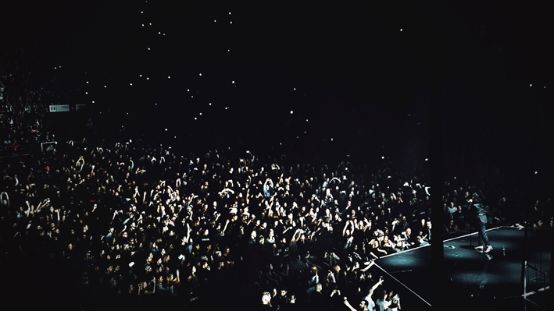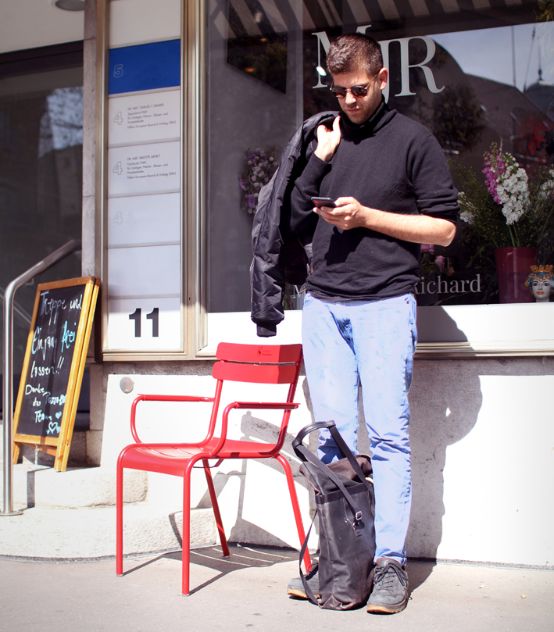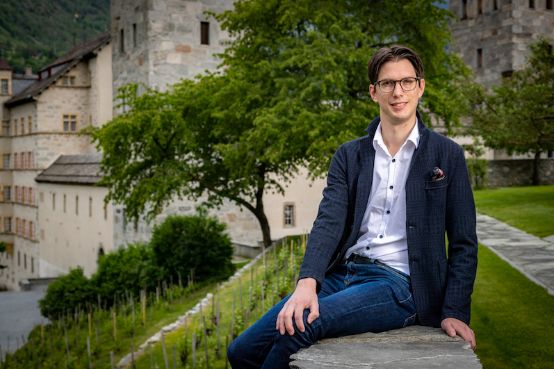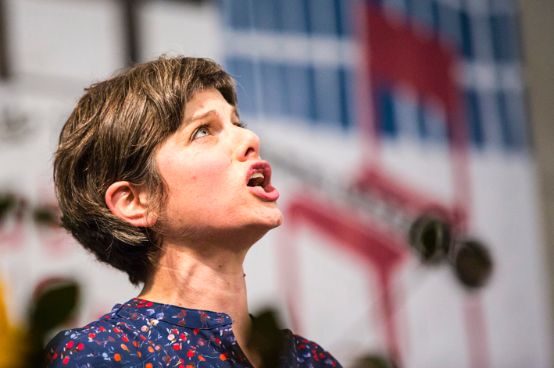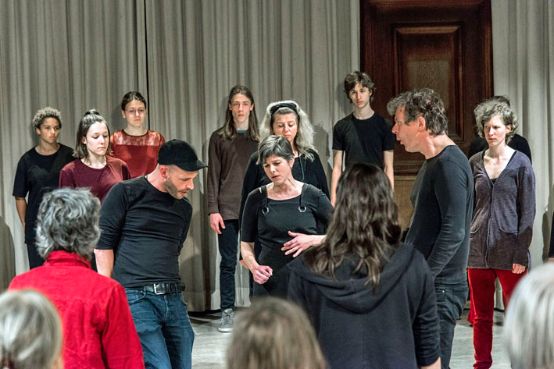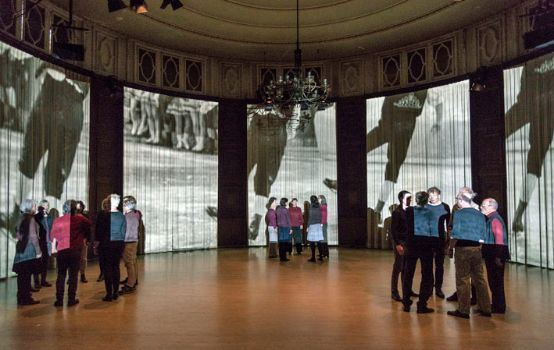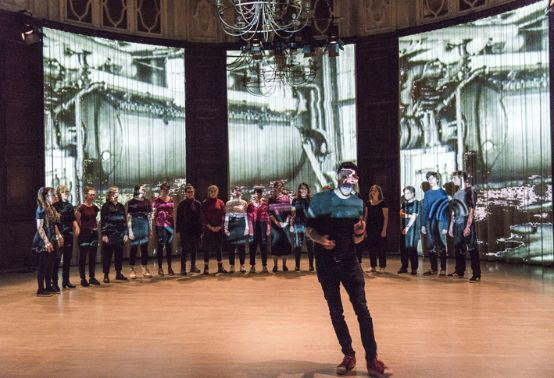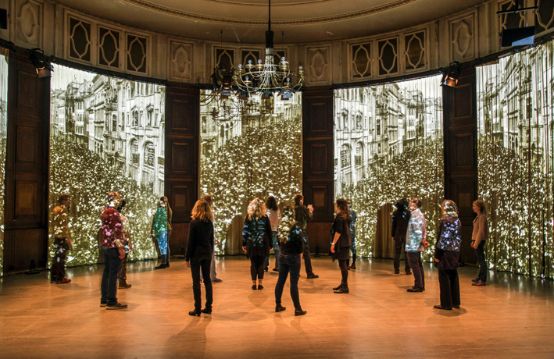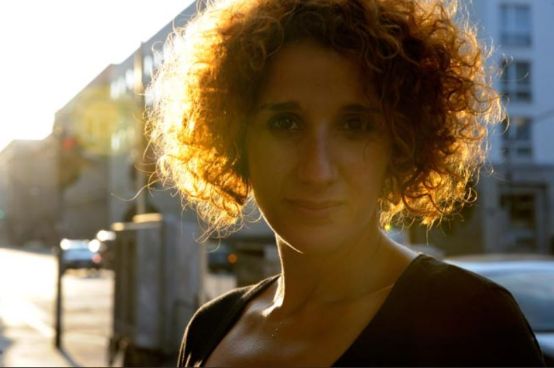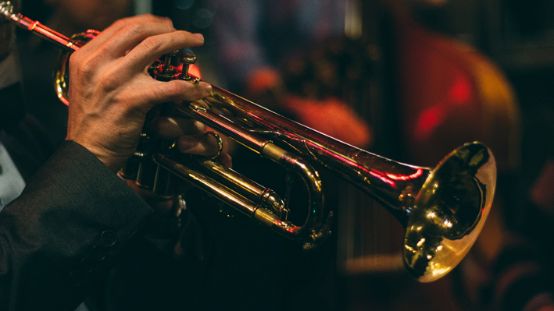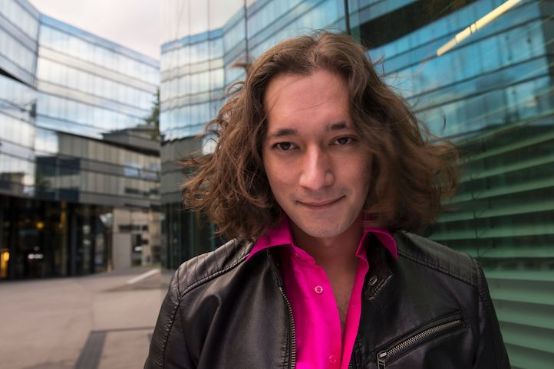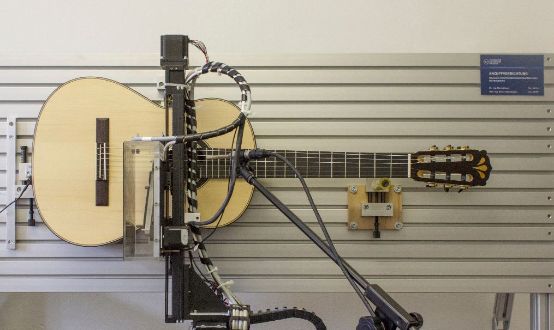The Bernese band Jeans for Jesus released their first album in 2014, after they had been working with Estavayeah - unexpectedly even for herself - landed the Swiss summer hit of 2013. They make contemporary digital, spherical electronic music with Bernese-German lyrics. The members, Michael Egger (Mike), Philippe Gertsch (Phil), Demian Jakob (Demi) and Marcel Kägi (KG), have known each other since their school days; Jeans for Jesus emerged from a school band. Their second album "P R O" from 2017, which they released together with a perfume, was also a success. Fans are currently waiting for the third album, which is due to be released at the end of this year.
You already sang on your first album: "Au di huärä Apps heimer ds Wartä vrlehrt." Can you, can you still wait? Without a smartphone?
Apps are programmed in such a way that we spend as much time with them as possible. This gives the manufacturers access to as much data as possible and allows them to place advertising. Of course, I can't defend myself against this either and often find myself doing so. No: I can hardly wait without my smartphone.
But that's not because you have to represent Jeans for Jesus on social media?
No, as a band we're not that active on these channels. I often read newspapers and sometimes watch videos. But there's still a lot of dull stuff on there.
Do you think something is lost by waiting?
I don't like to conjure up the good old days, so I'd rather not. The only problem is attention. Teachers I know say that it has become more difficult for students to read a text and concentrate for fifteen minutes. Of course, you can't judge this development conclusively, and I myself used to be easily distracted when I was only interested in something to a limited extent. I just think that boredom should not be lost.
So waiting and boredom are important things?
Exactly, to practice patience - or, especially for me, who is rather impatient, to have ideas. And it's also a nice thing.
Smartphones have not only changed the way we wait. Streaming has also turned the world of music on its head: Music can be played almost for free. On both of your albums, you take a critical look at consumption. How do you feel about this new music consumption?
We never made music at a time when you could still earn money with it in Switzerland. That's why the change has hit others harder. We know musicians who were still producing albums with six-figure budgets. Back then, ten thousand CDs sold brought in hundreds of thousands of francs. We're not far off that level, but we earn virtually nothing. But you can't stop that, especially not as an individual. What's more, production has become fundamentally cheaper. Making music has become accessible to a much wider audience and has been democratized to a certain extent. All you really need is a PC and, ideally, a bit of talent. Streaming is also a huge opportunity to discover other things - and to become better known.
What I find rather sad about the Swiss situation in terms of consumption is that you absolutely have to write one or two songs that are played on the radio. If you don't do that, you quickly fall under the radar as a pop band. That leads to a lot of compromises, which you can also hear here. Estavayeah or also Where are you still staying have far fewer rough edges than other songs. And with Spotify, this effect is amplified. It amazes me how many musicians are now creating very unobtrusive music that can be played in the background.
A change towards quantity. Does this have an impact on quality?
I don't think so for us; we have tried not to get too involved. But of course the influence is noticeable. This is also where the urban-rural divide comes into play: many musicians, like us as a pop band, who want to make contemporary, internationally influenced music, are almost only successful in the cities. In order to be known throughout Switzerland, others make a lot of compromises and pander. You can hear that the music has been made for the masses.
The same thing is happening internationally: With regard to streaming consumers, stars such as Drake or Migos have released albums with an average length of 25 songs in recent years.
Exactly, that happens with a lot of musicians that we also like to listen to. And short songs are also becoming more and more popular.
But your last album "P R O" also contains a whopping 18 tracks.
Yes, that's true, but it wasn't a calculation. This kind of thinking doesn't work with our size anyway, because streaming is financially insignificant. We simply didn't want to cut any more. We didn't have enough time before the release. You should actually have a month to get some distance and then cut three or four songs. But there won't be enough time for that on the new album either.
Time is pressing. Nevertheless, you took three years between the first and second album. Was it a deliberate wait?
The rule of thumb is actually: two years. There are bands that release an album every two years because they want to make a living from it. That would be the ideal cycle with concerts and so on. For us, three years is an almost natural process. We all work full-time and our kind of music also needs time ...
What do you mean by that?
Our music is contemporary in the sense that we process instruments and voices on the computer to an extreme degree, merging analog and digital until we are satisfied with the sound aesthetics. That takes time. And bringing the sounds to the stage in this way is technically relatively demanding. For our last live set, for example, we linked the lighting to the music via a computer program, which required complicated and time-consuming programming processes.
And now your third album is coming after another three years?
Yes, if everything works out, we can start playing concerts in the fall. During this phase, we'll be away for one or two evenings at the weekends, maybe one more rehearsal, and then the time we have available for music will be gone again. In other words, it's only after a year of touring that you slowly start making new music again.
So you haven't waited, you just need this time.
Exactly, it's a time thing! Only if music is your profession can you record a new album while you're on tour. Or you give away all your free time.
But you can't make a living from music?
Only very few people in Switzerland can do that, and of those who can, many have a job. It's not even up for debate here. I earn maybe 10,000 francs a year, optimistically calculated.
So it's more of a hobby than a job?
It is neither. It's a passion. When we ask each other, "Is it really just a hobby for you?", it's meant more as a joke.
When else are you waiting as a band?
You wait a lot on tours. You usually have to be at the club in the afternoon, you set up, then you wait and wait and eat and wait again.
But we also wait for each other a lot because of our division of labor. You do something on the music or lyrics, send it to the others and wait for feedback or for someone else to continue working on it.
Is that what you call a Dropbox tape?
Exactly, we just have about five chats in which ideas and music are constantly being sent back and forth. People who have a lot to do with us almost go crazy. But anything else wouldn't make sense for us. A rock band goes into the studio and jams. With us, on the other hand, Phil usually makes a sketch, then the song usually comes to Demi and me, we write melodies with imaginary lyrics and continue producing. Then the song goes back and forth. Usually, numerous versions and sketches are created, and sometimes other musicians are involved. The others work on the music from everywhere, Demi and I work on the lyrics from everywhere. If someone has done something new, you can listen to it on the go and give feedback. That's very practical. We always have a lot of fun in the chat. Until KG has to pour everything into a song, which is less fun for him.
So you don't see each other as a band that often?
Four of them? No, only about every two or three weeks. But Demi and I see each other very often at the moment because we write the lyrics together. And KG and Phil probably see each other more often too.
But do you already have a feel for the band?
Yes, very much. We always go away together. Most of "P R O" was written in Atlanta and we're in Italy for a few days at the end of June. Those are the best moments.
That sounds extremely relaxed. Is that how your career is going?
Only with the first album, because there was no pressure back then. We started maybe in 2010 or 2011, sometimes nothing happened for months. But when "Estavayeah" became such a hype, we had to get the album done as quickly as possible - it was a rush job - and perform. We weren't prepared to be a band at all. Everyone was around 25 years old and had a lot of personal stuff going on. I was just starting out in science at the time. It was only during the tour that we really realized what had happened. And then for the second album we were under a lot of pressure - at least it felt that way.
Also pressure from the label? You're on Universal, not a small label.
No, not at all, these are just ideas that are floating around. The pressure comes more from the positive press, the feedback, the expectations. When you're hyped like that, you have to do something good, something better. We think the second album is better than the first, but it was much harder.
The better your music gets, the less you can wait and see how things develop?
The upcoming album will decide a lot, show how things could go on. We might be able to do one or two things abroad or in French-speaking Switzerland, that would be cool of course. There are already two songs in French on "P R O" and we're keen to play with the language. But if it stays within the framework of the last tour, maybe we'll take more time and leave the previous cycle to produce something more challenging, more strange, who knows ...
So having time is still important for quality?
Extreme! At the same time, sometimes you only create good stuff under pressure. We made "Wosch no chli blibä" in three days. We had a crisis meeting shortly before the release of "P R O". "There's not a single song on it that will be played on the radio," I said. "Then we'll just have to make another one now," said KG. Phil went home and produced a beat in a day, Demi and I produced lyrics in a day ... Too much time isn't always good either.
You are also quick to pick up on technical developments.
Yes, we find that exciting. For example, the prospect that songs could be written together with artificial intelligence (AI). But there's also a big retro movement, especially in the arts pages; they like old devices, guitars, 80s synthesizers. Some journalists have even criticized us: so much digital processing ...
But you've also been praised a lot, compared to Frank Ocean or Kanye West.
Both, yes. In music, you can really see that people are afraid or, let's say, uneasy about technology. We once played at my mother's birthday party. People of that generation like rock bands. I wasn't able to explain to them that hitting a pad and triggering pre-programmed sounds is basically the same as playing the piano. It's probably a perception problem. It's difficult to differentiate between analog and digital sound. From the moment you press a key, there is actually no "natural" sound anymore.
But AI still raises the question of whether there will still be a need for an artist or a band like you in the future?
The question is how to use them in an artistically valuable way. We are very optimistic about progress and tech-savvy, but of course you have to observe what the programs achieve. Kanye West already works in a comparable way: for years, he has had dozens of versions of every song made by the producers who are currently the most popular. But at the end of the day, someone has to decide: This is good and that is not. In my opinion, it will be a long time before AI can do that.
Maybe you'd rather do it yourself because it's fun?
Yes, that will be super interesting. But what could also be the case, as Demi always says, is that music will become less important. Kids listen to music much more widely these days; it seems that identity is now more about videos and games. For us, what you listen to is who you are. When I was 15, there was a big divide: Some people listened to rap, others to rock. It's different today - and I actually think it's better that way.









